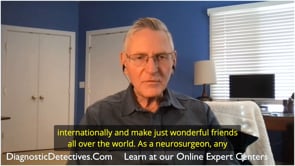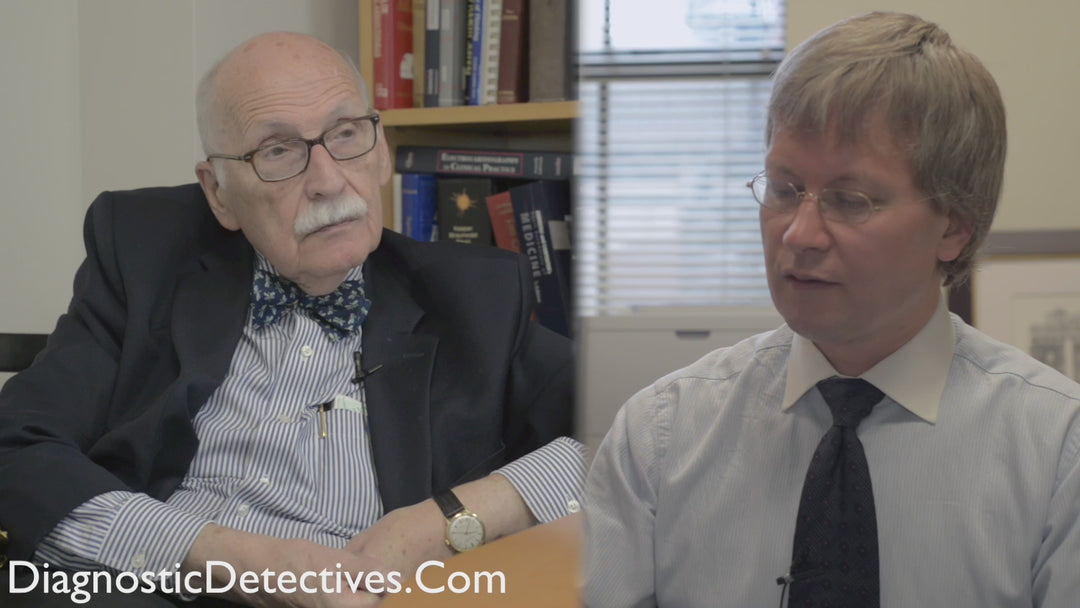Leading liver disease expert and leadership scholar, Dr. Sanjiv Chopra, MD, explains the four essential traits for happiness and the critical importance of finding one's purpose in life, drawing on wisdom from historical figures and his upcoming book on living a fulfilling life.
Keys to Finding Purpose and Achieving Lasting Happiness
Jump To Section
- The Four Traits of Happiness
- The Power of Friendship
- The Liberation of Forgiveness
- Finding Fulfillment in Service
- Cultivating an Attitude of Gratitude
- How to Discover Your Purpose
- The Role of Tragedy in Purpose
The Four Traits of Happiness
Dr. Sanjiv Chopra, MD, identifies four core traits consistently found in the happiest people. These traits form a foundational framework for a fulfilling life. His research and discussions with philosophers and colleagues reveal a clear pattern. These elements are accessible to everyone seeking greater joy and satisfaction.
The Power of Friendship
Dr. Sanjiv Chopra, MD, emphasizes that a strong circle of good friends is the first key to happiness. He describes friends as a chosen family, a vital support system for celebrating life's moments. He quotes Robert Louis Stevenson, who called a friend "a gift that you give to yourself." Dr. Chopra also references Kahlil Gibran's view of friendship as a "sweet responsibility, never an opportunity."
Best-selling author James Rohn's adage, "You are the average of the five people you spend the most time with," underscores the importance of consciously selecting positive influences. Actively celebrating both small and large achievements with these chosen individuals significantly boosts well-being.
The Liberation of Forgiveness
The second essential trait for happiness is the ability to forgive. Dr. Sanjiv Chopra, MD, uses the powerful example of Nelson Mandela to illustrate this point. After enduring 27 years in prison, Mandela expressed no bitterness toward his captors. His profound insight was that "resentment is like drinking poison and then hoping it will kill your enemies. It will only kill you."
This metaphor highlights how holding onto anger and resentment is ultimately self-destructive. Letting go of past hurts is not about condoning wrongs but about freeing oneself from their emotional weight to achieve peace.
Finding Fulfillment in Service
Dr. Sanjiv Chopra, MD, points to service as the third critical component of a happy life. He cites Nobel laureate Albert Schweitzer, who stated, "The ones amongst you who will be truly happy are those who have sought and found how to serve." This principle is deeply embedded in professions like medicine, where individuals have daily opportunities to be of service.
Whether through direct patient care, research, or public policy, finding ways to contribute to the well-being of others provides a deep and lasting sense of purpose and fulfillment.
Cultivating an Attitude of Gratitude
The fourth trait, which Dr. Sanjiv Chopra, MD, notes is not God but gratitude, is a powerful catalyst for happiness. Regularly expressing thankfulness for the people and things in one's life has a direct and positive impact on mental health. This practice shifts focus from what is lacking to what is abundant.
Making gratitude a consistent habit can fundamentally rewire one's perspective, leading to greater contentment and joy in everyday experiences.
How to Discover Your Purpose
While the four traits foster happiness, Dr. Sanjiv Chopra, MD, argues that sustained happiness requires finding and living one's purpose. This concept is central to his upcoming book, "The Two Most Important Days," which plays on Mark Twain's famous quote about the day you are born and the day you find out why. Dr. Sanjiv Chopra, MD, explains that purpose provides a resonant, guiding force in life.
Discovering this purpose can be an intentional process of deep reflection and introspection. It is the key to transforming fleeting happiness into a profound and enduring state of fulfillment.
The Role of Tragedy in Purpose
Sometimes, purpose emerges not from quiet reflection but from a stark, negative, or jolting experience. Dr. Sanjiv Chopra, MD, observes that many people discover their life's mission after witnessing a profound tragedy. This experience can provide the courage and fortitude to declare a situation unacceptable and commit to making a difference.
Dr. Anton Titov, MD, and Dr. Sanjiv Chopra, MD, discuss how these difficult moments can become powerful catalysts for positive change and a clearly defined life path. The book by Dr. Sanjiv Chopra, MD, and Gina Vild, set for publication on December 26th, delves deeper into these transformative journeys.
Full Transcript
Dr. Anton Titov, MD: Dr. Sanjiv Chopra is a renowned liver diseases expert and leadership scholar. He shares his wisdom on how to lead a happy and fulfilling life. In your talks you often quote Mark Twain: "The two most important days in your life are the day when you are born, and the day you find out why." How to find one's purpose in life?
Dr. Sanjiv Chopra, MD: Yes, so this is a great question! Let's talk a little bit about happiness and then living with purpose.
Dr. Sanjiv Chopra, MD: My next book will be published this December by St. Martin's Press. I have written it with a colleague and a friend, Gina Vild. She is Associate Dean for External Communications and Chief Communication Officer at Harvard Medical School. The whole book is about happiness and living with purpose.
When we were coming up with the title, we discovered with our literary agent Trident Media in New York that there are more than 200,000 books with the word "happiness" in the title. In our book, we are putting much more focus on living with purpose.
We came up with the idea to have a little play on Mark Twain's quote. Mark Twain once said: "The two most important days in your life are the day you are born and the day you find out why." The title of our book is going to be "The two most important days", then the subtitle "How to find your purpose and live a healthy and happier life."
My reflections and some of my research and discussion with amazing colleagues, some philosophers, is that there are four traits of the happiest people on this planet. They include having a cadre of good friends. Your friends are your chosen family.
Robert Louis Stevenson said, "A friend is a gift that you give to yourself." Kahlil Gibran said, "Friendship is a sweet responsibility, never an opportunity." James Rohn, a best-selling author, has said, "You are the average of the five people you spend the most time with." Select your friends and celebrate everything, small or big, with your friends. That's number one.
Second trait is ability to forgive. Nelson Mandela served 27 years in prison. When he was released, he's asked a question, "Mr. Mandela, do you have a resentment or bitterness against your captors?" He gives the most beautiful answer. He said, "I have no bitterness, I have no resentment. Resentment is like drinking poison and then hoping it will kill your enemies. It will only kill you."
The third trait of happy people is a take from Albert Schweitzer, Nobel laureate of 1952. He got the Nobel Peace Prize; he was a physician, theologian, humanitarian. He once said, "I don't know what your destiny will be, but one thing I'm certain of: The ones amongst you who will be truly happy are those who have sought and found how to serve."
Look at medicine. We are in that amazing profession where we can be of service every single day, whether we are on the wards or we are doing research or public policy. I have distilled it into three Fs: Friends, Forgiveness, For others.
But there is a fourth one. It begins with the letter G. It is not God. It is Gratitude. Sometimes we express gratitude on a regular basis; you'll be happy. Those are the four keys for happiness.
But in order to have sustained happiness, one has to find and live one's purpose in life. Once you do that, it will resonate for you. We can all come to that either by thinking about it, or sometimes one witnesses something very stark, jolting, negative.
Then one has the courage and the fortitude to say, "You know what? This is unacceptable! I'm going to make a difference." I can tell you many stories about some amazing people who've found their purpose in life by first witnessing a tragedy. It is a wonderful quote by Mark Twain and it is so true.
Dr. Anton Titov, MD: We are definitely looking forward to seeing your book! When does it get out?
Dr. Sanjiv Chopra, MD: December 26, St. Martin's Press.
Dr. Anton Titov, MD: This is definitely going to be a very interesting book! Thank you!







